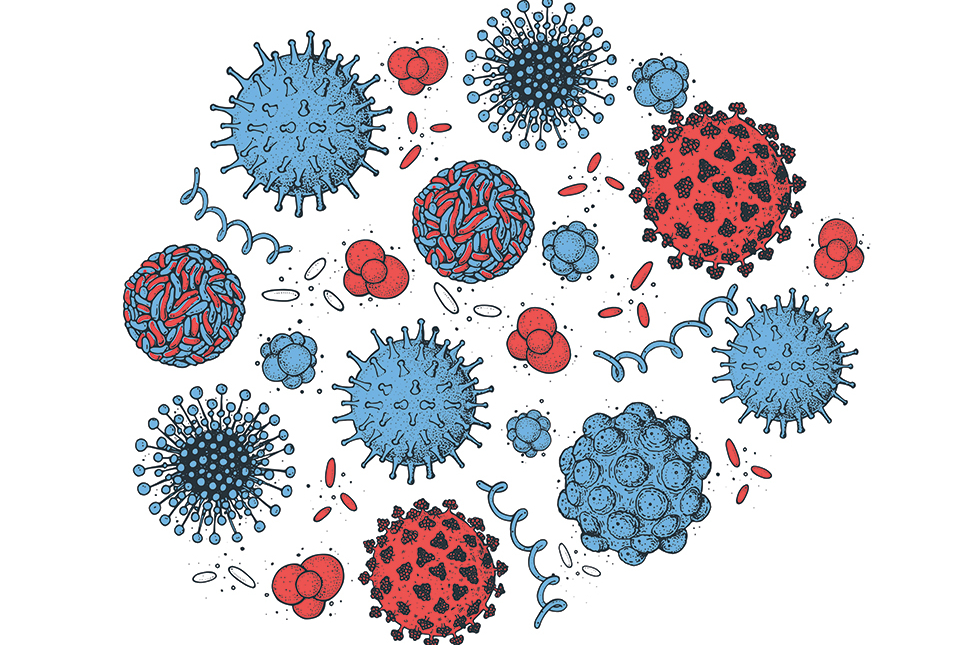
A major new effort at Weill Cornell Medicine seeks to catalog the normal human virome, the immense ecosystem of viruses that lives in and on us. The work, part of a multi-institution collaboration called Viromes Across Space and Time (VAST), supported by the National Institute on Aging, part of the National Institutes of Health, will pioneer new techniques, illuminate a crucial aspect of human biology that was impossible to study before, and establish a baseline set of data that could help in preventing, diagnosing and treating disease.
Most viruses don’t make humans sick. Indeed, virologists have long suspected that the world is awash in viruses that cause no disease and that traditional lab tests can’t detect, but recent advances in DNA and RNA sequencing and bioinformatics have finally allowed them to probe this biological dark matter. Understandably, much of that work has focused on how changes in the virome can contribute to disease. The new project tackles an equally important question: what does a healthy virome look like?

Dr. Christopher Mason. Credit: Ashley Jones
“We want to have a better understanding of viral variation, abundance, and variety around the world, particularly in people who are just living normal lives,” said Dr. Christopher Mason, WorldQuant Professor of Genomics and Computational Biomedicine at Weill Cornell Medicine and a principal investigator on the project. Dr. Alexander Lucaci, a postdoctoral fellow in Dr. Mason’s laboratory, added that “most of what we know about viruses is from pathogens, but we’re now trying to understand the ones that just exist in us, and we have really no idea what they do.”
VAST will draw on a large library of samples Dr. Mason’s lab has already collected and will also follow cohorts of additional participants during the project’s five-year run and beyond. The participants range from children and adolescents to the elderly, from different parts of the world and with a wide range of life histories.
“We’ll have tens of thousands of samples, and longitudinal cohorts we’re following for years, and additional metadata about their exposures,” said Dr. Lucaci, who is heading the project’s bioinformatics analysis.
Teams at Weill Cornell Medicine and Stanford Medicine will split the work. At Weill Cornell Medicine, Dr. Mason’s group will focus on the molecular biology and computational biology and Dr. Inmaculada de Melo-Martin, professor of medical ethics in medicine, will analyze the ethics of such large-scale data gathering. Dr. Braden Tierney, instructor in computational biomedicine (courtesy) at Weill Cornell Medicine, is working on the computational tools for the project. Altogether, VAST will lay the groundwork for a more comprehensive approach to virology.
“This foundational layer of information will help us see how the normal virome shifts based on different diseases or a person’s background, and there may also be viruses that are typically asymptomatic that become opportunistic pathogens,” said Dr. Mason, who is also a professor of physiology and biophysics at Weill Cornell Medicine.
